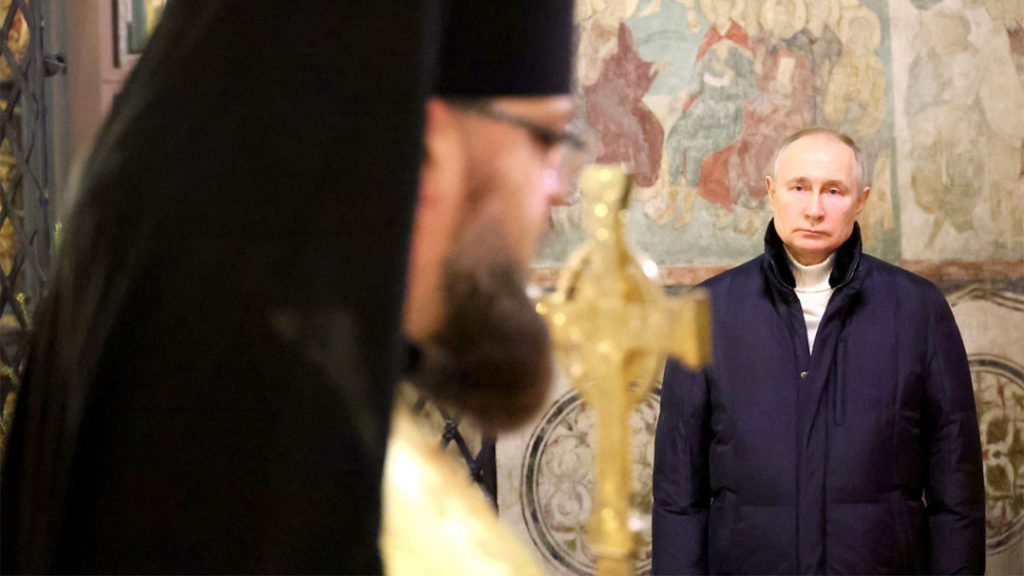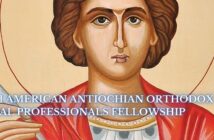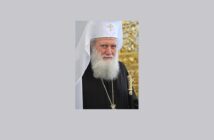Source: The Moscow Times

Vladimir Putin attends a Christmas service alone at the Cathedral of the Annunciation in the Kremlin.
The celebration of Orthodox Christmas in both Russia and Ukraine on Jan. 7 provided ample evidence of what the Washington-based Institute for the Study of War has called Russia’s weaponization of religion in its propaganda war against Ukraine.
Just as Ukraine’s 2013 Maidan Uprising was seen by Vladimir Putin as a personal affront, the 2018 creation of an independent Ukrainian Orthodox Church to replace the Moscow-aligned Ukrainian Orthodox Church Moscow Patriarchate, has not been forgiven by the head of the Russian Orthodox Church, Patriarch Kirill, who was left fearing a domino effect should other regional churches seek to break free of Moscow’s historic control.
Until recently the most powerful religious congregation in Ukraine was a church under the control of the Moscow Patriarchate, a fact that has been used repeatedly by Kremlin propagandists to demonstrate Ukraine’s status as an effective vassal state, while its rejection of the Russian-led church has been used to justify the invasion on the grounds that Russia has a duty to protect Orthodox believers in Ukraine from schismatics.
When announcing his recognition of the Donetsk People’s Republic and the Luhansk People’s Republic on 21 Feb, Putin spoke of the need to protect the interests of the Russian Orthodox Church in Ukraine, warning that the Ukrainian government had “cynically turned the tragedy of a church schism into a tool of state policy.”
Patriarch Kirill took the president’s lead, and on 6 March, he called the war “metaphysical.” Since then, the patriarch’s public appearances have tended to include military elements: from presenting an icon to the head of the Russian National Guard to announcing that dying in battle would exculpate all one’s sins.
For its part, the Ukrainian Orthodox Church has attempted to cut all ties with Moscow, ceasing to mention Patriarch Kirill in the liturgy, dismissing pro-Russian bishops, and having its head, Metropolitan Onufriy, publicly condemn the war.
However, these attempts have not prevented the recent search by the Ukrainian authorities of the UOC’s churches, monasteries, and offices for pro-Russian materials, nor has it spared several of its bishops from being sanctioned, nor has it stopped the introduction of legislation banning religious organizations with Russian links.
The Ukrainian government continues to see the church as a dangerous mouthpiece for pro-Russian views and a serious threat to national security but has stopped short of attempting to ban it, rightly seeing that as a direct infringement on the freedom of millions.
Shortly before Orthodox Christmas on Jan. 7, Patriarch Kirill issued a call for a 36-hour ceasefire to allow believers to take part in church services in Ukraine. The same evening Putin declared a ceasefire, supposedly submitting to the patriarch’s request. Of course, it was Putin who made the decision to call a brief truce, but why did he do so?
The ceasefire pledge was most likely an attempt to convince Western politicians and wider public opinion of both Russia’s humanity and Ukraine’s bloody-minded refusal to hold peace talks, appealing to the enduring fondness many Europeans have for the famous Christmas truce between the British and Germans troops during World War I.
There may have been no ceasefire in the end — Kyiv rejected Putin’s proposal to follow suit, and some Russian units continued fighting — but Christmas in Ukraine saw the UOC hold its first-ever service at Kyiv’s Pechersk Monastery, one of the holiest sites in the Eastern Orthodox tradition. The monastery complex, which until the end of 2022 was in the hands of the Moscow Patriarchate, had been returned to the Ukrainian state just days beforehand.
The event was of enormous symbolic importance to Ukrainians, even prompting President Volodymyr Zelensky to mention it during his Christmas address. “I was glad to see how many people, how many of our soldiers, came to the church service today at the Kyiv Pechersk Monastery, the sacred place that is one of the sources of the Ukrainian cultural tradition. It is very significant that a true prayer for Ukraine was heard at the monastery today, and that it will be heard again.”
Patriarch Kirill unsurprisingly accused Kyiv of carrying out religious persecution and compared the move to the Soviet-era destruction of churches and the murder of priests. In a sermon on Jan. 8, the patriarch said that “the same sort of devilry as that seen in Russia after the revolution” was now afoot in Ukraine.
Kirill has long identified the current Ukrainian government with the “godless regime” of the Soviet Union, and refers to supporters of the Russian Orthodox Church in Ukraine as “martyrs” whose protection dovetails effortlessly with other such Kremlin-pushed ideological touchstones such as “desatanization,” “holy war” and “jihad”.
As large crowds gathered at Kyiv’s Pechersk Monastery on Jan.7, Vladimir Putin spent Christmas standing alone in a completely empty Church of the Annunciation in the Kremlin — the traditional church of the Russian Tsars.
While the tsars were accompanied by their families and ceremonial entourages when attending services in the Kremlin churches on holy days, Putin has progressively turned the liturgy, a church service in which the community traditionally comes together, into a private ceremony performed for one person.
Watching videos of Christmas liturgies filmed over the past two decades, you can see physical evidence of the Russian president’s growing isolation with every passing year. Accompanied by fewer and more physically distanced people each Christmas, the meticulously vetted parishioners ultimately disappear altogether, until Putin finally finds himself standing alone in complete solitude.




4 Comments
Ukraine is in an existential battle for survival against Russian troops, Russian propaganda, Russian spies and sympathizers, and Russian attempts to erase Ukraine’s cultural identity. This is not a war of Ukraine’s choosing.
In times of war, nations and their leaders often resort to extraordinary measures that they deem necessary to survive and win. Most have been controversial both then and since. Second-guessing them is the work of historians.
Lincoln suspended habeas corpus during the Civil War (and so did George W. Bush after 9/11).
Roosevelt interred Japanese American citizens during WWII and imposed media censorship.
Truman approved the Atomic bombings of Hiroshima and Nagasaki.
It is not surprising that Ukraine would seek to protect itself from Russian agents in ROC Churches and ethnic Russian separatists within its borders during wartime.
There is no moral equivalency between Putin/ROC’s “religious” war of territorial conquest, war crimes targeting of civilians, and scorched-earth destruction of infrastructure and Ukraine’s attempts to protect itself against internal threats to its war aims.
Granted the evil and guilt of Putin, is there no one to raise an issue about the 25-year NATO choke-hold on Russia, and the inundation of secular Western culture in the Ukraine, as understandable existential threats to Russia, and its reactions against them, whose majority desires to live by conservative traditions?
Fr. Ted,
You’re kidding, right?
“25 year NATO choke-hold on Russia”?
When did NATO become anything but a defensive alliance against Soviet (and now Russian) aggression?
When did NATO threaten to invade Russia or lay a claim against any territory of Mother Russia?
Is it any wonder why Poland, Lithuania, Estonia, Latvia and now even Sweden and Finland want to come under the protection of NATO? Do you believe that they all want to be part of NATO because they want to INVADE RUSSIA? Or do you believe that NATO’s real purpose is to force Russia to accept LGBTQ+ culture?
Do you really believe that the “Inundation of secular Western culture in Ukraine (is) an understandable threat to Russia? Do you also believe that the Spanish Inquisition was justified?
I can see that you are unhappy about the “inundation of secular Western culture,” .. whatever that means to you .. or the Professors at Fordham .. or the monks on Mt. Athos.
Does a Gay Pride parade in Athens mean that Russia would be justified in invading Greece? Or does that mean that the Church of Greece has failed to defend the Orthodox culture of Greece from the “secular West”? What percentage of Athenians attend Sunday Liturgy as opposed to Starbucks or McDonalds?
Can you at least consider the possibility that Putin and his KGB comrade Kirill are using the Church as an excuse for their irridentist aims to re-enslave the formerly captive nations of eastern Europe?
If the majority of the people in Russia, or Greece, or wherever.. want to live by conservative traditions, they are certainly free to do so. Beyond their own freedom to live as they wish, they can use peaceful means to fight back against the secular Western culture. Maybe, as a clergyman of the Greek Orthodox Archdiocese of America, you should answer Eric Metaxas’ recently published “Letter to the American Church” (https://ericmetaxas.com/books/letter-to-the-american-church/).
Greetings Father Ted,
With your kind permission, I would like to reply to your post. First of all, I agree with you. NATO is an anachronism and should be disbanded. It is the belief of many thoughtful, intelligent people that Zelensky has been trying to get NATO to join him in his war with Russia. Let’s face it, NATO is the United States. This man is actually trying to start World War III. We are precipitously close to a nuclear war with Russia. What does that mean? The end of life on planet Earth as we know it. I don’t like to discuss politics, but Biden should cease enabling Zelensky through armament at once. Christ our Lord said: “Blessed are the peacemakers.” He never said, “Blessed are the warmongers!!” Lord, have mercy on us!!